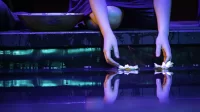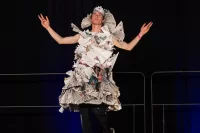
The COVID-19 pandemic was raging worldwide when Grace Acton ’24 of Harvard, Mass., arrived at Bates for her first year. Like her peers, she faced myriad pandemic protocols — universal masking, twice weekly testing, social distancing, and limited extracurricular fun.
But unlike many of her fellow students, Acton was at high risk for COVID due to preexisting immune and respiratory issues, making for an awkward and sometimes lonely entry into college. So she reached for a pastime she learned in childhood: sewing.
“I couldn’t really do much besides go to class and be in my room. So I brought my sewing machine with me and I had various sewing projects. It was nice to not just be bored and alone,” Acton said.
But what started simply as a way to pass time led Acton to a supportive community in the Bates costume shop, to mentors who proved kindred spirits, to a senior honors thesis on Bates’ historical clothing collection.
For this month’s installment of the “What It Took” series, which explores how Bates people find resilience, we wanted to celebrate the joy in doing the things you love — whether it’s to help you get through winter, help you get through finals, or simply help you smile — with Grace Acton as an example.
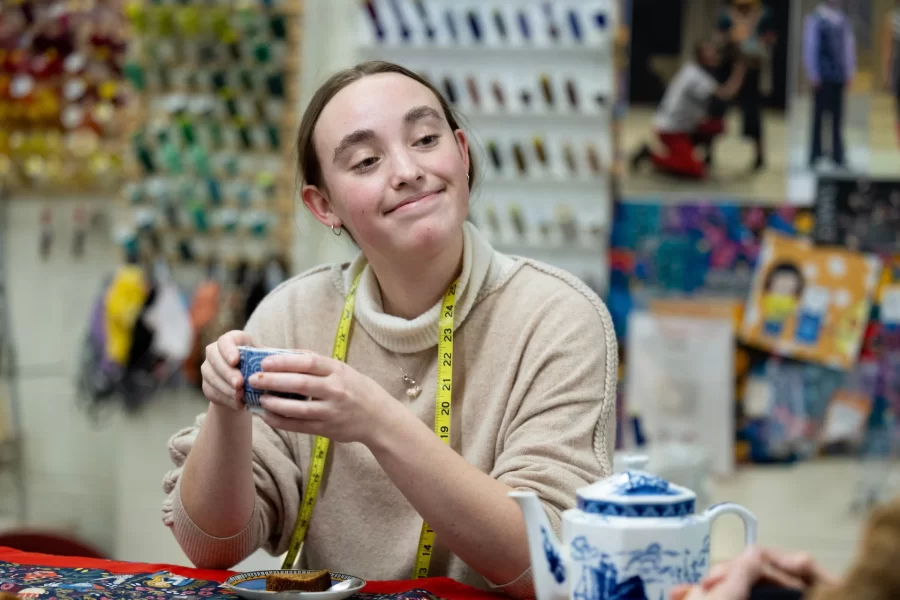
To be sure, Acton is not unique in exploring a new hobby or pastime in the early years of the pandemic. Many crafts exploded in popularity during COVID-19. But what sewing provided to Acton outlasted the pandemic, giving her the resolve to make time for herself, and a deeper understanding of how important that is.
At first, Acton said, sewing was just something to do. “Then sewing became this really therapeutic hobby for me. It’s also very tactile, and something totally different from my very digital academic work,” she said.
Acton first learned to sew at age 8 when her mother helped her make drawstring bags for her gymnastic team. It was several years later before she decided on a whim to try her hand at making her prom dress by herself. Then COVID hit and canceled everything, including the prom.
But that navy gown turned out so well, Acton rode the wave of success and decided to create a historic dress in the summer before coming to Bates. When she finished it, she wore it for photographs her sister Lily took at the public library in their hometown.
Acton thought the ornate, brick Harvard Public Library looked so much like the Hogwarts School of Witchcraft and Wizardry in the Harry Potter movies, she goofed around in front of it in her period-style dress as her sister took photographs to capture the moment.
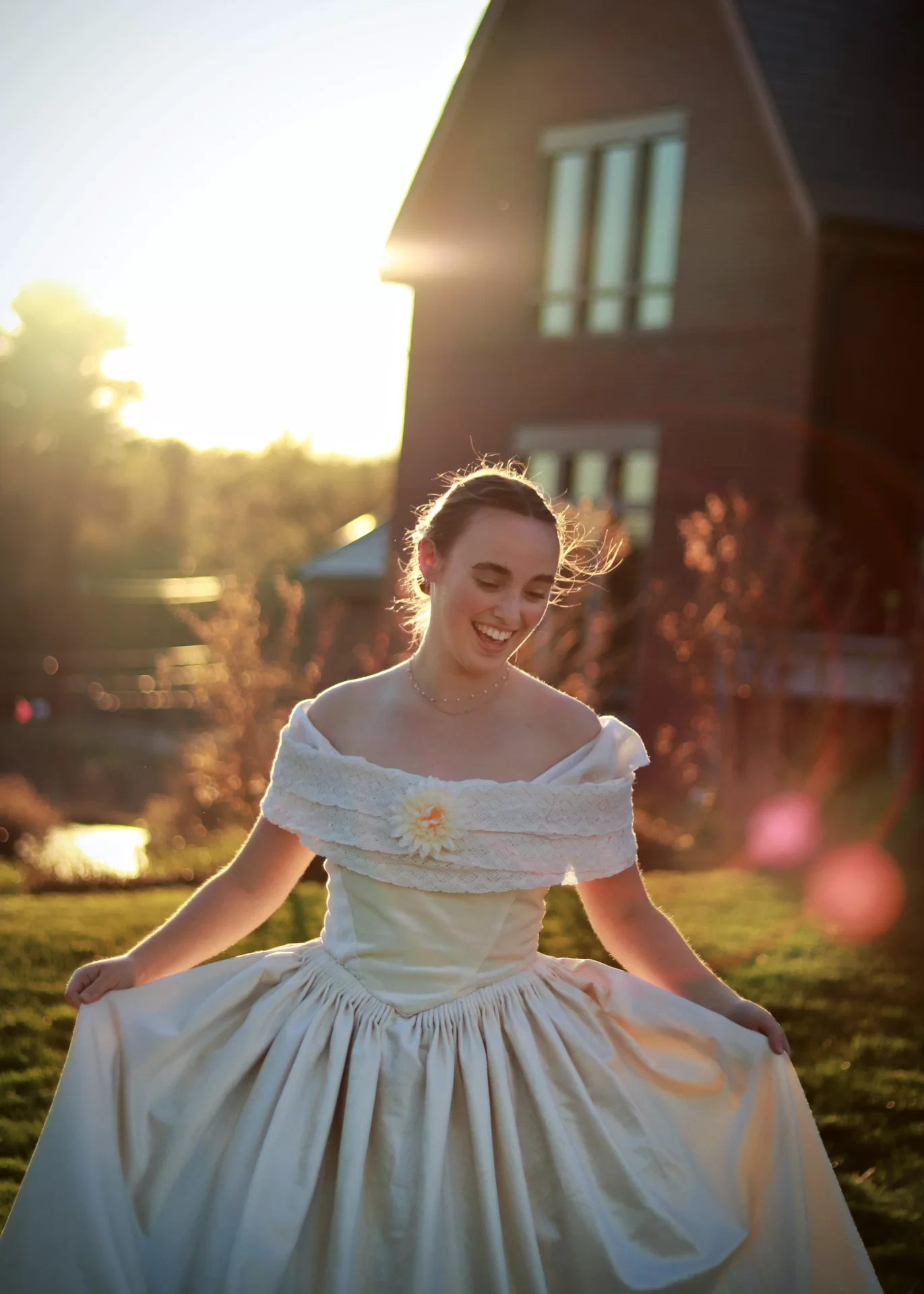
Then it was on to Bates, for an unusual first year, with all those pandemic protocols.
During her first semester, Acton took the course “Fashion: A Survey of Western History,” taught by Associate Professor of Theater Chris McDowell, and wore a coat she had made to class. McDowell took one look at it and said Acton would be a valuable addition to the student team in the theater department’s costume shop. Acton joined the shop that winter and never left, fitting her shifts in around academics and sports as a member of the varsity golf team.
“At the end of it, I would just feel relaxed,” Acton said. “Everybody at Bates has a busy schedule. I am not unique in this. Every student and faculty member is always go, go, go, go. And it’s nice to make time in the day for myself.”
Costume shop supervisor Carol Farrell is a champion of this philosophy, as illustrated at 2 p.m. each day when she stops work in the shop to invite everyone to gather for tea.
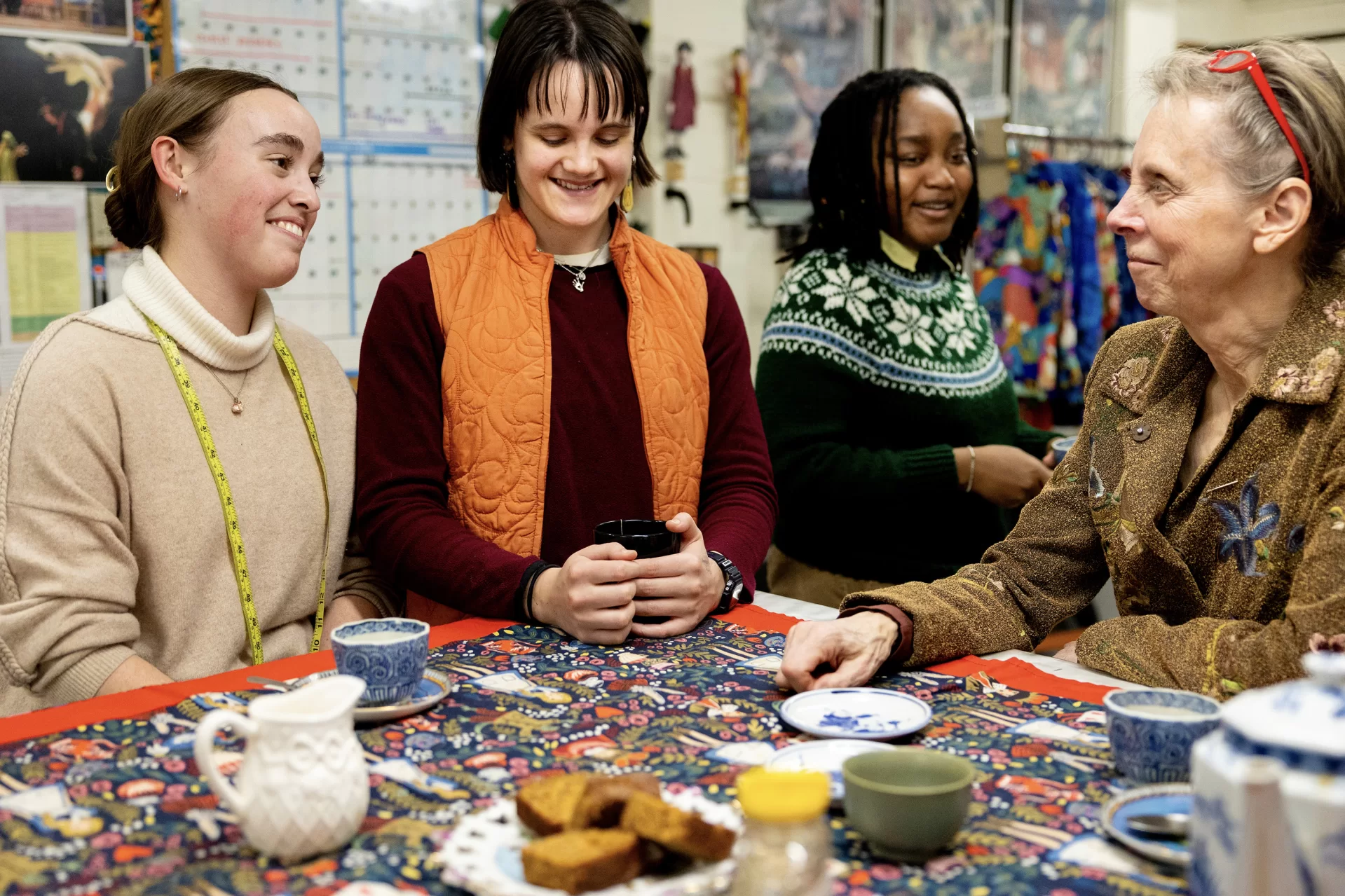
“We think of this as the good-vibe zone,” Farrell said. “Sometimes people just want to stop in because they need to not feel crazy. People who don’t work in the shop just come by saying how crazy busy they are. I feel we all benefit from spending a little time getting to know each other and creating a community. Because when is creating community not important?”
Acton called Farrell an important mentor at Bates. Farrell, who is retiring in May, called Acton a rare gem, one who is skilled and creative and brings a zeal for solving puzzles.
“Grace is super bright and super capable. She loves to figure stuff out,” Farrell said. “And she has the hand-to-brain connection. Increasingly people don’t have the hand-to-brain connection — except for working their phones.”
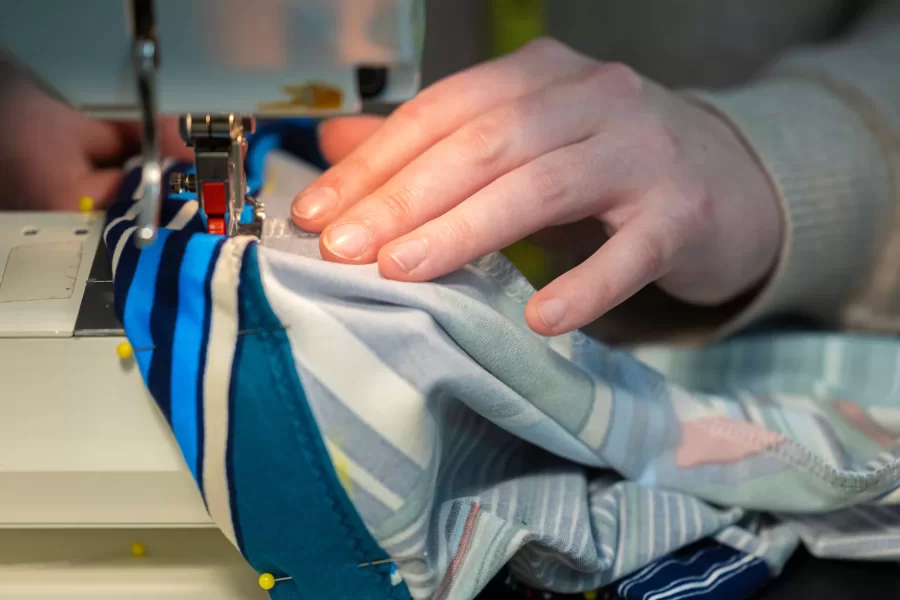
Several weeks after joining the costume shop, Acton showed her flair for creativity and problem solving when faced with a surprise lockdown due to a spike in COVID cases at Bates. That came at noon on April 1, 2021, with an email instructing students to return to their rooms by 2 p.m. Acton had just enough time to visit a nearby fabric store. She had a plan.
The week before, the massive container ship Ever Given got stuck and blocked the Suez Canal for six days, launching memes all over social media. With material purchased in the moments before the lockdown, Acton sewed a green “boat dress” that resembled the container ship, complete with colorful squares on the top that represented the many containers.
When she finished it, she went with her friend Diana Rodriguez ’24 of Houston to photograph the dress on April 6 by Lake Andrews. (At that point, contract tracing was completed and students were allowed to move about outside as long as they wore masks.)
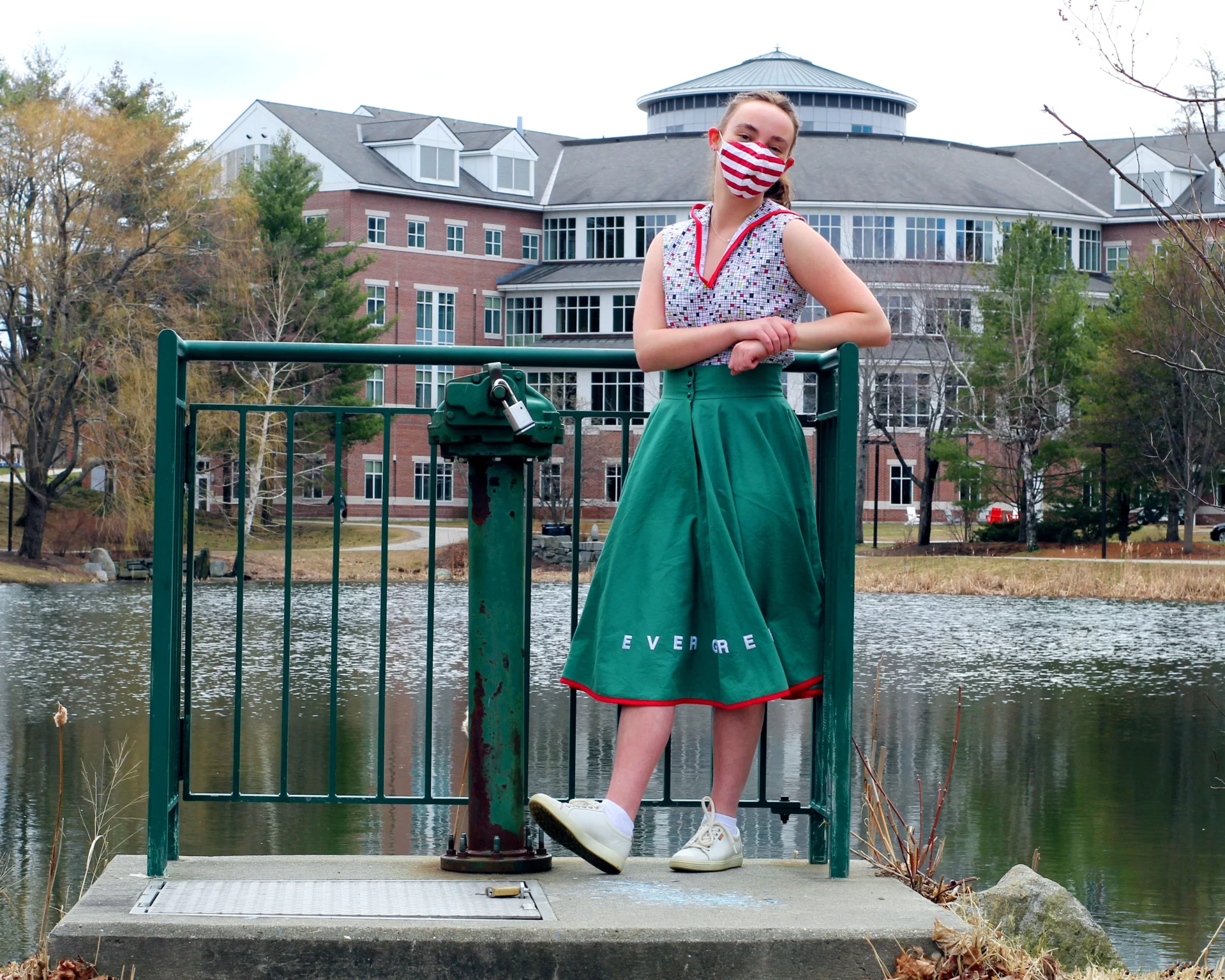
“The reason that the boat dress project sticks with me more than my many other lockdown sewing projects is the connection and collaboration with my housemates,” said Acton, who lived in a single room in Stillman House (which was converted to first-year housing during COVID).
“We were all stuck together in this scary and isolating time, but we all got a big kick out of this silly project and it was a great distraction. Sewing has helped me make connections with so many people at Bates, and this was one of the first examples of that.”
Located just downstairs from the lobby of Schaeffer Theatre, the costume shop has sewing machines lining one wall, large tables for ironing, and, on one Thursday, a clothing rack full of hippie-style clothing on hand for a performance. It’s an open, bright, white gathering space with splashes of color throughout. Accessories from past theater productions hang on the wall. All around the ceiling, several black decorative crows look down from above, as if inspecting the hands-on work.
It’s where Acton enjoys what she calls her “focus time,” a place where she created many elaborate outfits for the college’s annual Trashion Show — simply for the fun of it.
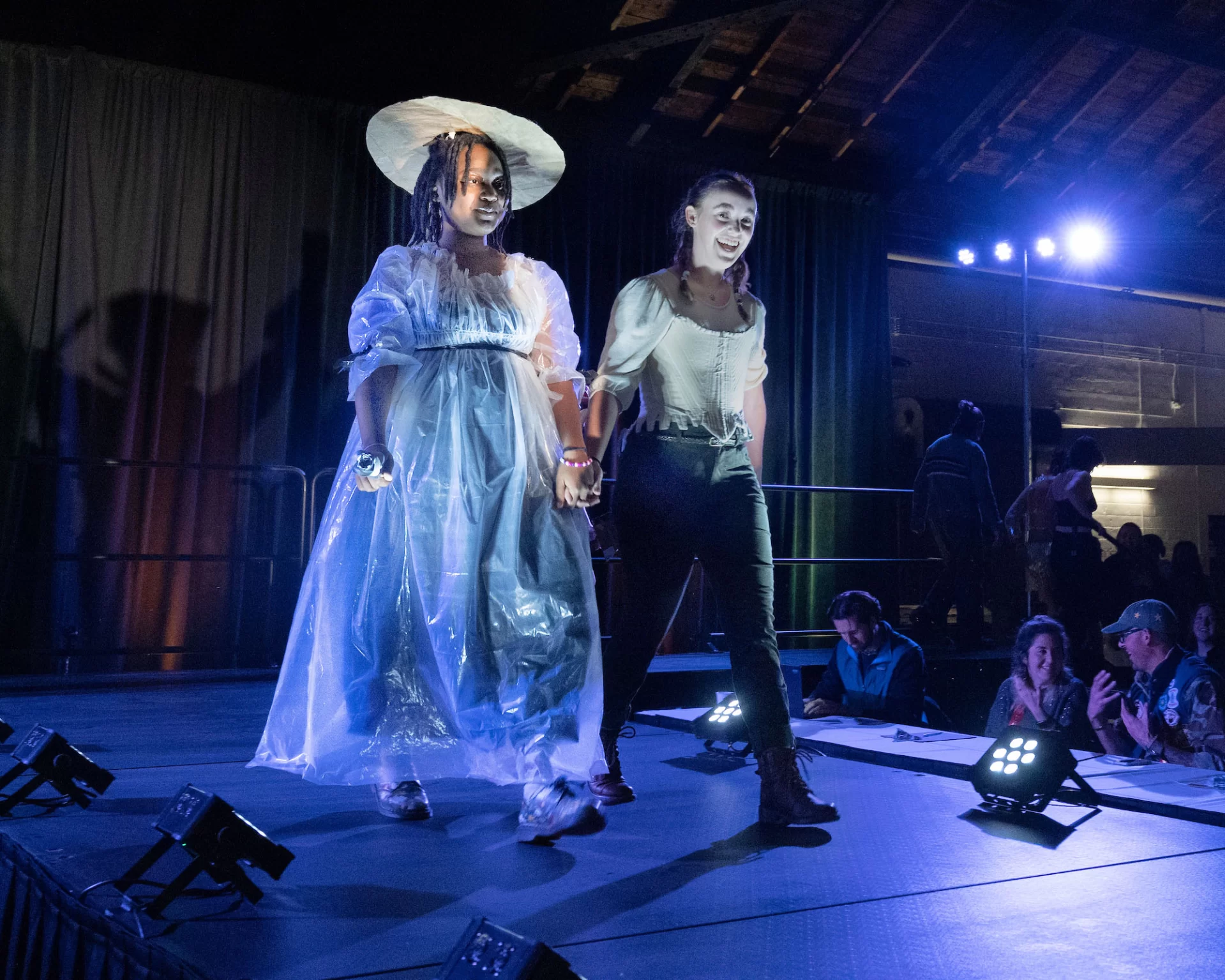
“What I love about working in the shop and the kind of space that Carol creates in there is it’s a place where I don’t look at my phone,” Acton said. “I feel like I’m always looking at a screen. Even my history work, which normally you’d think of as being such an analog field, even that work is super digital. And my texts come through on my laptop, and my texts come through on my phone. It’s really hard to disconnect from the screen.”
Acton came to Bates envisioning she would major in mathematics and politics. But after taking McDowell’s fashion history class, she changed her mind. “I have always been a math brain and I love math,” she says. “But I particularly like the application of math to other things.”
And that’s how Acton landed on her unusual self-designed major, which draws from history and digital and computational studies. This year, Acton is completing a senior honors thesis that “applies math and data science to a historical topic,” in this case, a hidden-away collection of historical clothing.
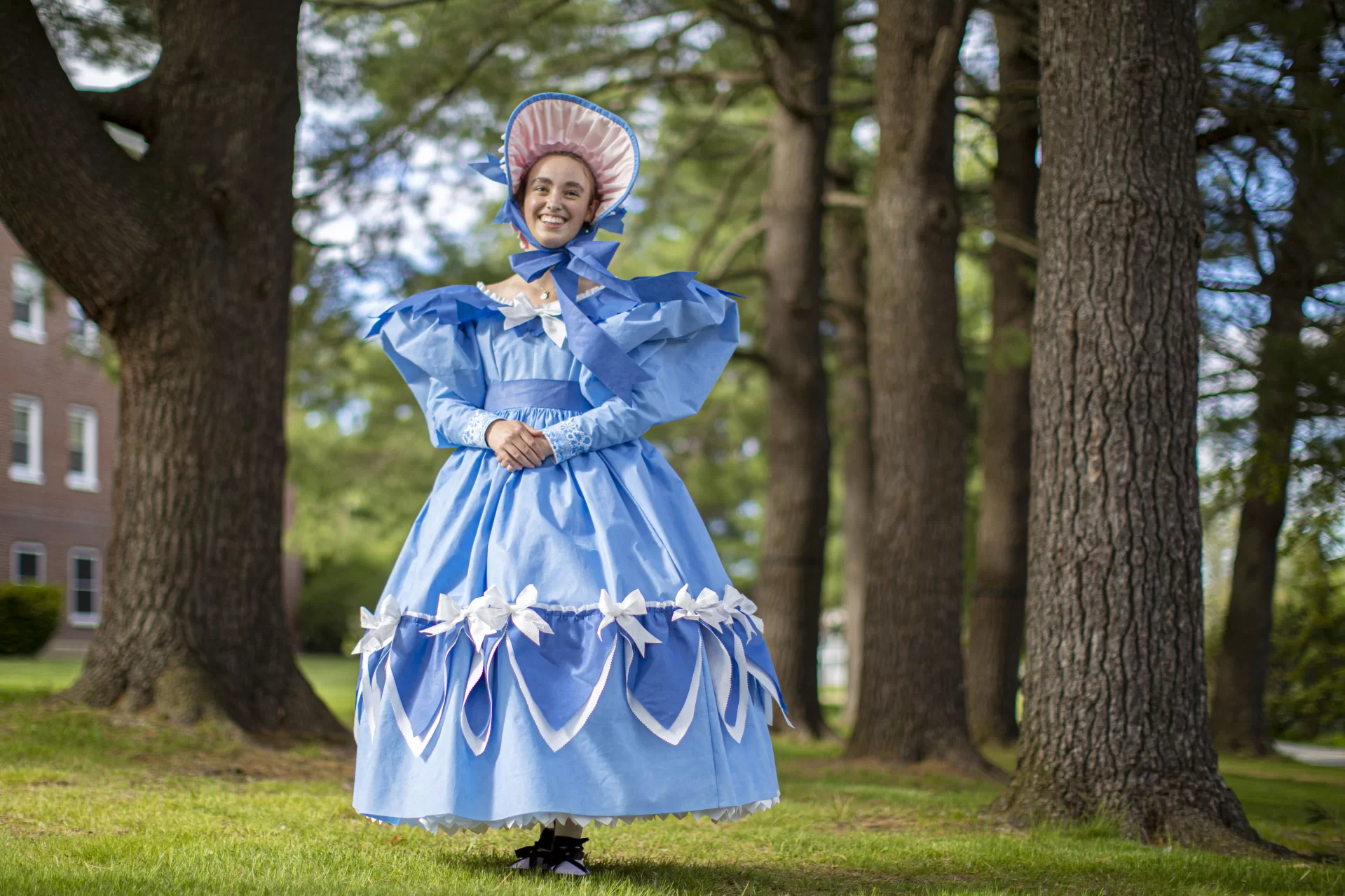
For years, the theater department has accepted donations of vintage clothing, some dating to the 1800s, from well-meaning faculty, staff, families, alumni, and local residents. Outstripping the department’s ability to catalog the donations (or to use them in shows), the clothes ultimately filled box after box in storage.
Enter Grace Acton, who is working to, as she says, “data-ify” this collection into a Bates College Clothing Archive that will be accessible through both physical and digital archives.
With boundless enthusiasm, and co-advised by McDowell and Anelise Hanson Shrout, assistant professor of digital and computational studies, Acton has been taking an inventory of the antique clothing collection to decipher the era of each article of clothing and catalog all of it.
Since September, Acton has examined and dated around 180 pieces of clothing by assessing the kind of textiles and sewing techniques used in each one. “It’s turned out to be the most-fun project,” she said.
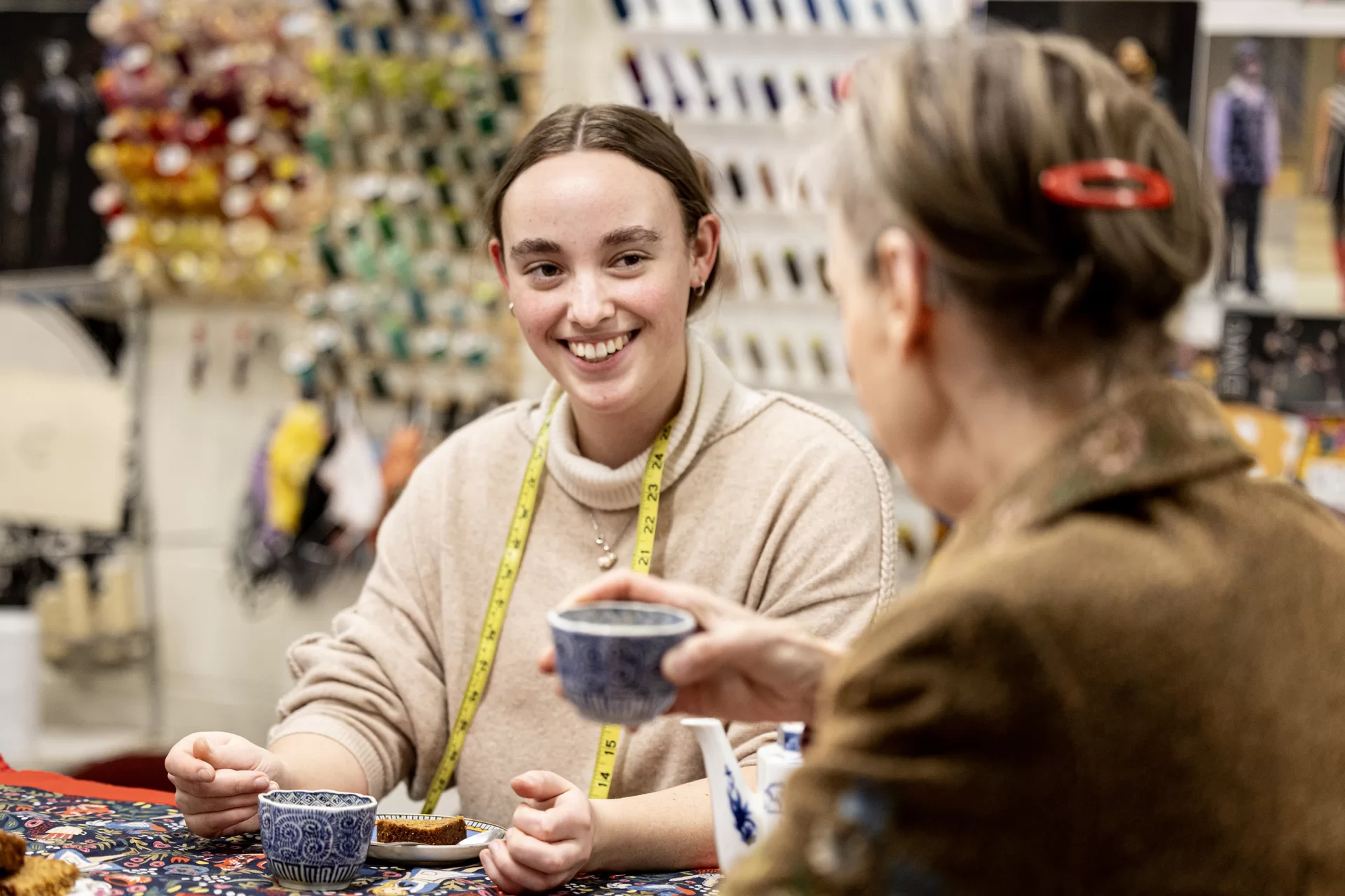
“The kind of work Grace is doing is work that people are trying to do all over the country in museums,” said McDowell, a clothing historian. “We’re both interested in having a cultural understanding of what sewing means, the idea of labor. When it takes you 40 hours to make something, you have a very different appreciation of that.”
As she finishes her senior year, Acton is still living the lesson she learned from her mentors, and from her time alone sewing. Research and academics should be serious and rigorous, but there should always be fun and time made for oneself.
Next fall, Acton will pursue a master’s degree in digital humanities with a focus on history and data science at Lancaster University in England — where she plans to continue sewing.
